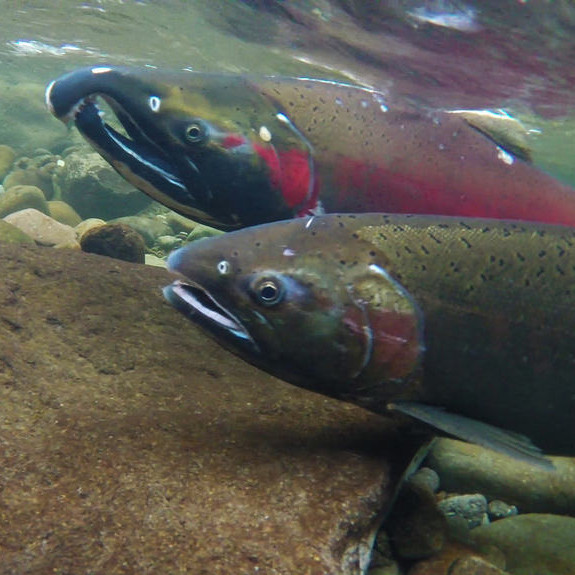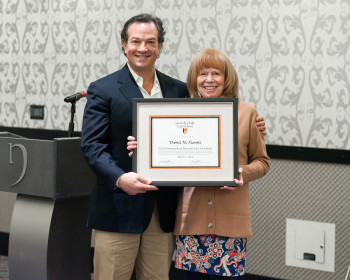Environmental law clinic, Earthrise, wins Oregon challenge against Oregon’s water polution standards
Earthrise and its co-counsel, on behalf of Northwest Environmental Advocates (NWEA), won a challenge against Oregon’s illegal water temperature standards, which change goals from cold temperatures to hot—and is sometimes lethal for salmon and other imperiled cold-water species.
Open gallery

Earthrise Law Center, one of Lewis & Clark Law School’s clinics, and its co-counsel, on behalf of Northwest Environmental Advocates (NWEA), recently won a challenge against Oregon’s water temperature standards, which change goals from cold temperatures to hot. Warmer temperatures can be lethal for salmon and other imperiled cold-water species. The federal court ruled that the U.S. Environmental Protection Agency (EPA) failed to create pollution clean-up goals, called “Total Maximum Daily Loads” or “TMDLs”, that would protect salmon species from temperature pollution in Oregon’s waterways.
“If EPA had consulted with the expert fish and wildlife agencies…those scientists would have told EPA that fish can’t live in lethally hot water. This is why today’s court decision is so important.”
Nina Bell, NWEA Executive Director
The Oregon temperature TMDLs were based on a rule that an earlier court decision threw out in 2012. Oregon had used the illegal rule every time it issued a temperature clean-up plan. The rule allowed the Oregon Department of Environmental Quality (DEQ) to change state water quality goals for temperature without any federal agency review or agreement, contrary to the requirements of the Clean Water Act. The new court ruling requires EPA to consult with the expert fish and wildlife agencies before approving a TMDL that effectively changes the applicable water quality standards for temperature.
“In 2003, EPA said that temperatures of 90º F are instantaneously lethal to salmon at exposures under 10 seconds,” said NWEA Executive Director Nina Bell. “But that didn’t stop EPA from approving a DEQ clean-up plan for streams and rivers in the Umpqua Basin that changed Oregon’s water quality standards from 64º F to that same dangerously high temperature of 90º F.”
NWEA is represented by Earthrise Law Center attorney and Lewis & Clark Law School professor, Allison LaPlante, and by Bryan Telegin of Bricklin & Newman, LLP out of Seattle.
Law Communications is located in room 304 of Legal Research Center (LRC) on the law Campus.
MSC: 51
email jasbury@lclark.edu
voice 503-768-6605
Cell: 626-676-7923
Assistant Dean,
Communications and External Relations, Law School
Judy Asbury
Law Communications
Lewis & Clark Law School
10101 S. Terwilliger Boulevard MSC 51
Portland OR 97219

